
IN GOD WE TRUST
2009-2016
Father, Sister and WifeThree channel, 21m37s, BW, Stereo, 2015
You Cannot Cross the Sea Merely by Staring at the Waves
Curated by Diana Campbell Betancourt, Galerie Krinzinger, Vienna
You Cannot Cross the Sea Merely by Staring at the Waves
Curated by Diana Campbell Betancourt, Galerie Krinzinger, Vienna

Ear of my Son
27 February 2013
I was standing outside the emergency department when the doctors first showed me my child, Mikail only for 5 minutes. Mikail needed time to naturalize after his birth and I couldn’t even see full body of him in our first encounter. It seemed a long wait, I was surrounded by my father, sister, Trisha, Seuty and other family members my heart was pounding. The first sight my son, the first floods of excitement within- I can still feel it today. Holding Mikail in my hands, before I could recollect my conscious, my father recited the beautiful Adhan (prayer call) by Mikaeel’s ears.
27 February 2013
I was standing outside the emergency department when the doctors first showed me my child, Mikail only for 5 minutes. Mikail needed time to naturalize after his birth and I couldn’t even see full body of him in our first encounter. It seemed a long wait, I was surrounded by my father, sister, Trisha, Seuty and other family members my heart was pounding. The first sight my son, the first floods of excitement within- I can still feel it today. Holding Mikail in my hands, before I could recollect my conscious, my father recited the beautiful Adhan (prayer call) by Mikaeel’s ears.
Hair of Munmun
I can no longer show any photo of my sister Munmun to an outsider where the tresses (hair) are visible. She went to the Hajj pilgrimage in 2005, and continued practicing Hijab ever since. It was a constant struggle for me to accept her decision. I have so many beautiful photographs of her in my archive but I can’t show them now.


Muhhram is traditionally celebrated by the Shia Muslim community. During this day, they chant 'ya Hussain…ya Hussain' with chest beating (Matam), some goes to trance, and some starts crying or hold each other in pain in the remembrance of Imam Husayn. History says, almost 175 years ago a Sufi, Shah Abdur Rahman went to bihar to study and got married to the daughter of a Sufi saint. But the bride was Shia and the groom was Sunni. Later, when the groom wanted to bring his wife and father-in-law to the Bengal, they were not willing to come.
Bengal is a locality of Sunni who do not celebrate Muhhram. To bring them to Bengal, he promised his wife to arrange Muhhram’s celebration in his village which was never happening before
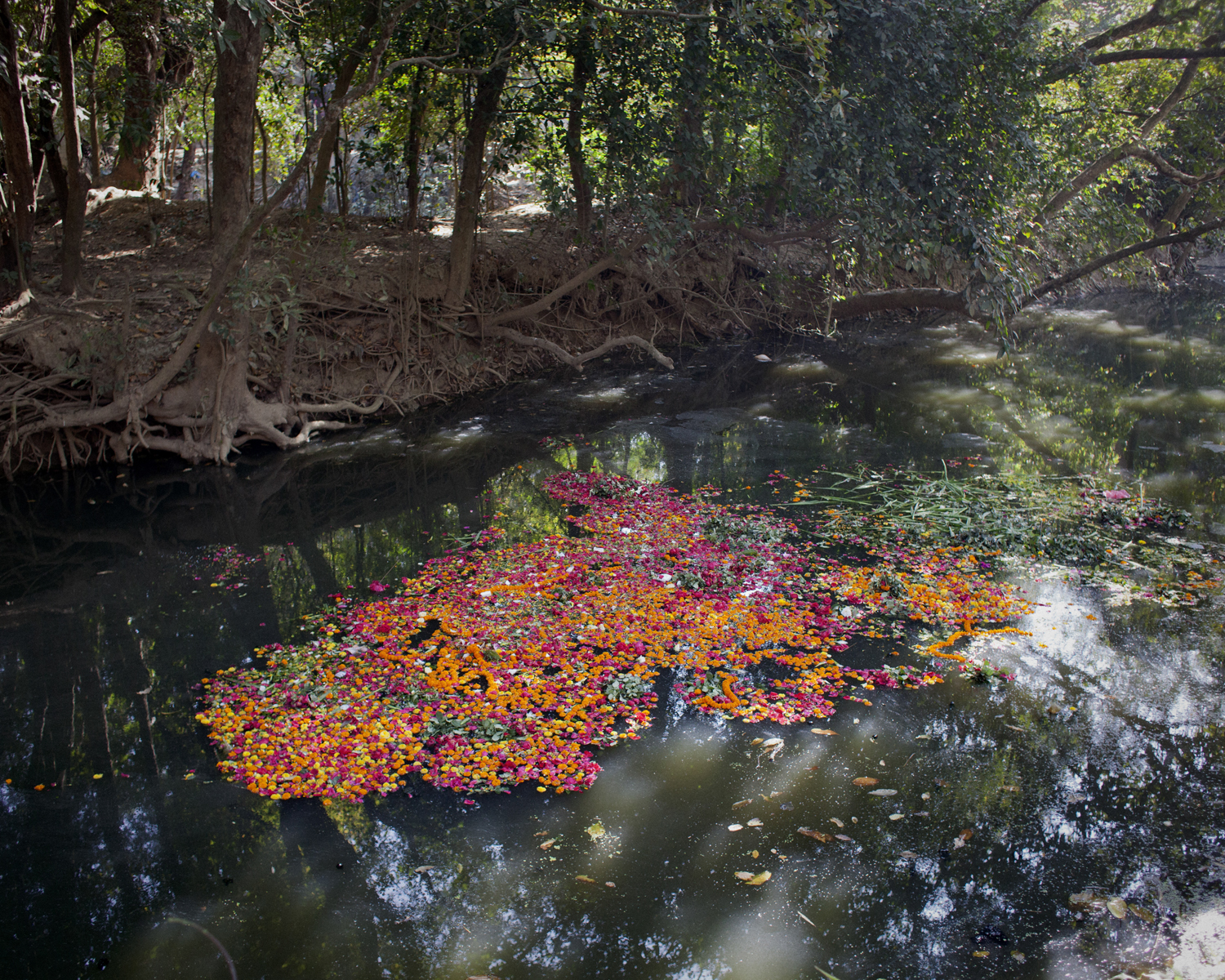


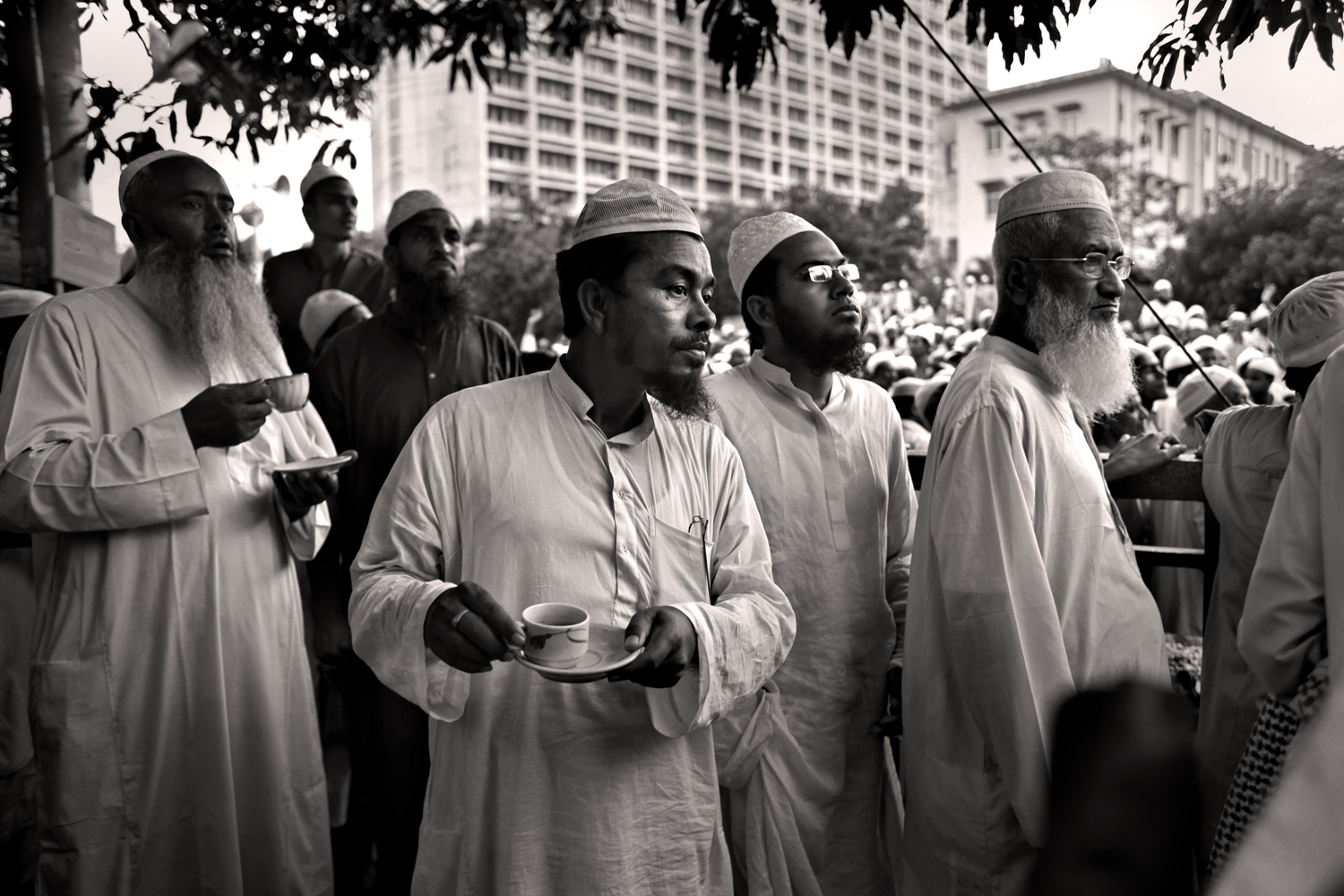
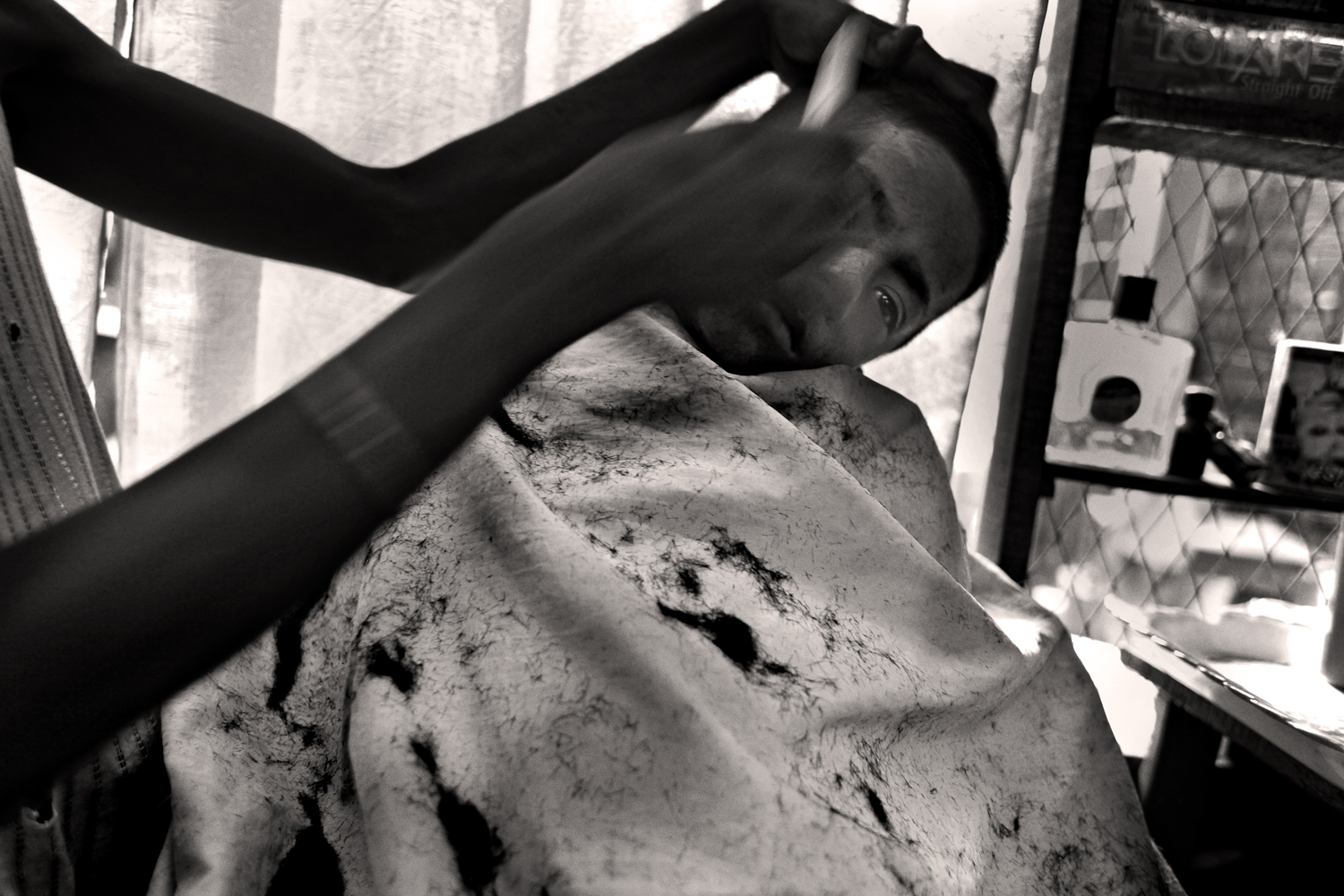
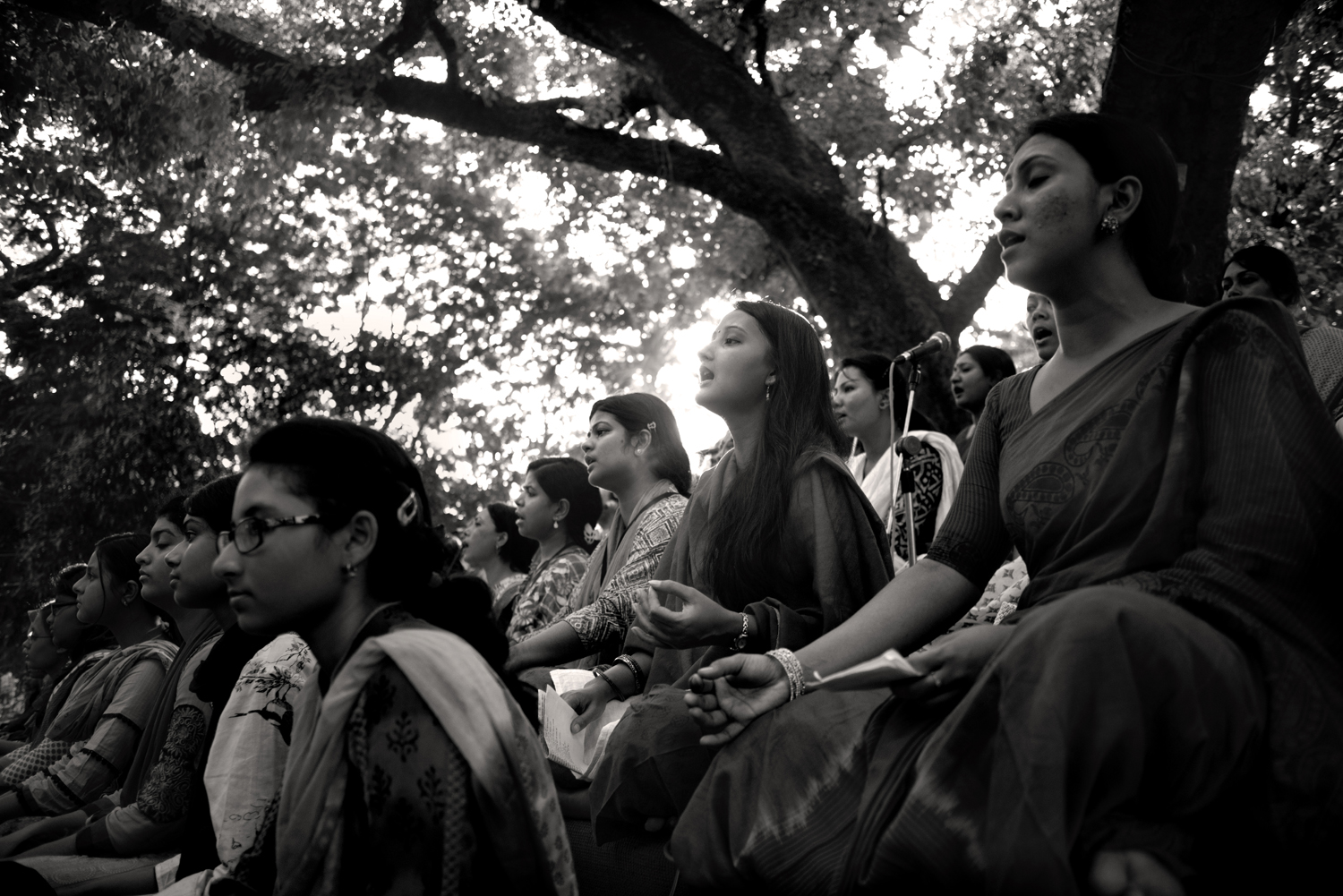


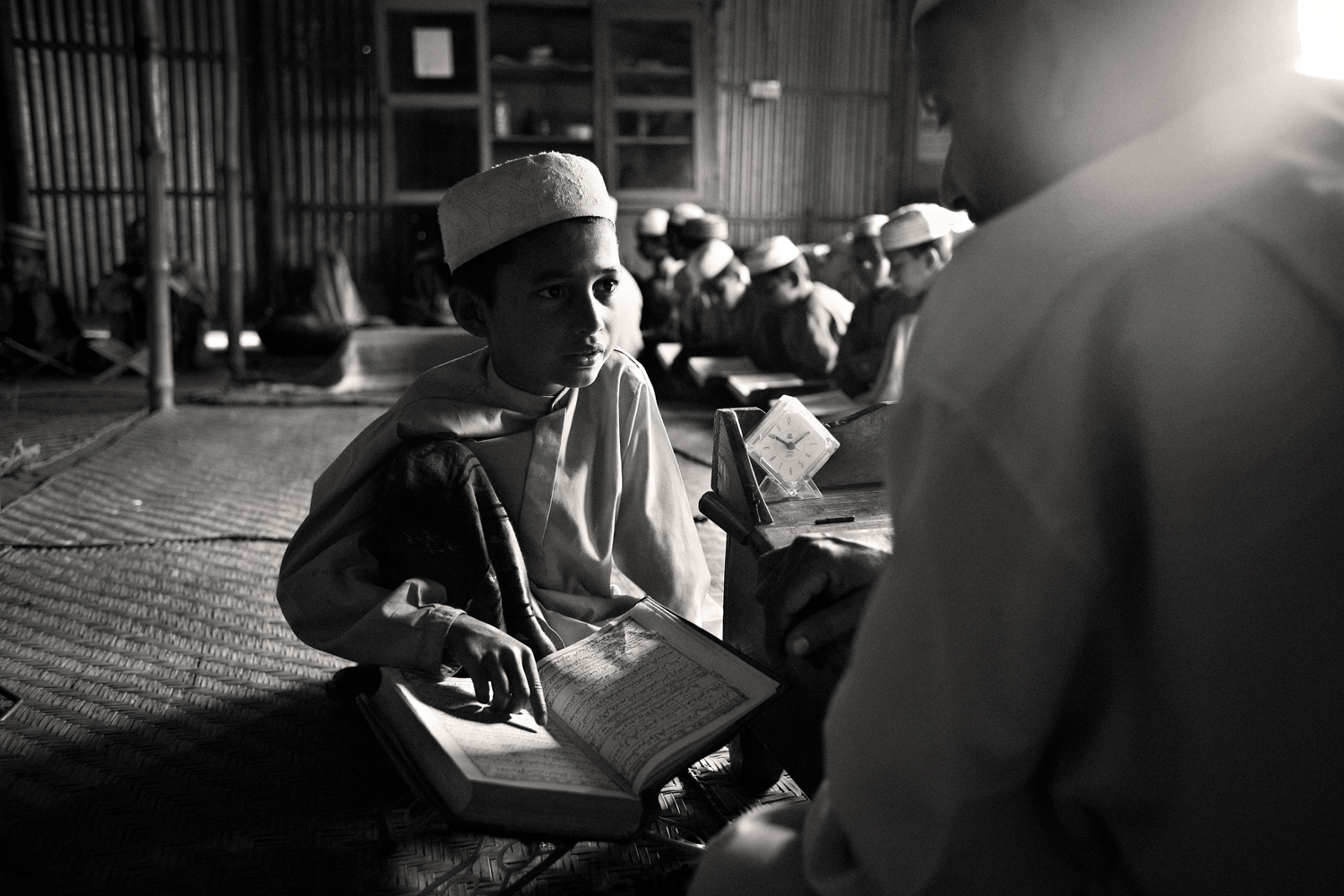
A cluster of ethereal Black & White photographs, some intimate objects and the video conversations of the close ones, Munem Wasif connects these pieces together to inquire the riskiest subject-matters; religion, identity and personal belongings. These are often risky, because people have strong faiths and opinions, and the overlaps are often overlooked. Wasif’s search starts from a simple, immediate experience.There are two realities Wasif faces simultaneously.
Islam weaves relationship with his childhood, upbringing, close ones and the neighborhood; it has stayed close to his memory and intimate surroundings. And his second reality is his own international identity as a bearded Muslim guy, which haunts him every time he travels to Europe, maybe in a small moment when people stare at his bag in a metro of Paris.
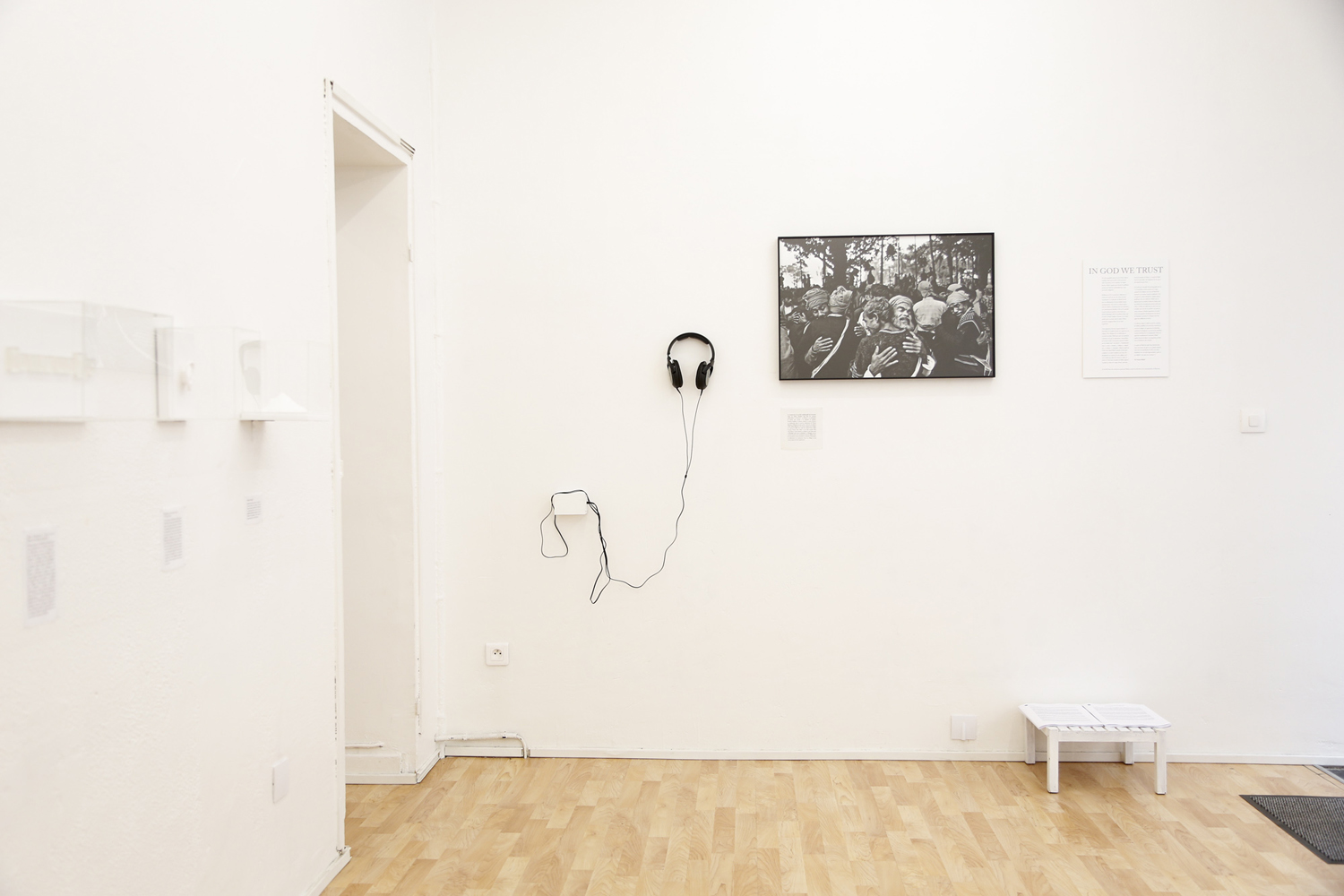
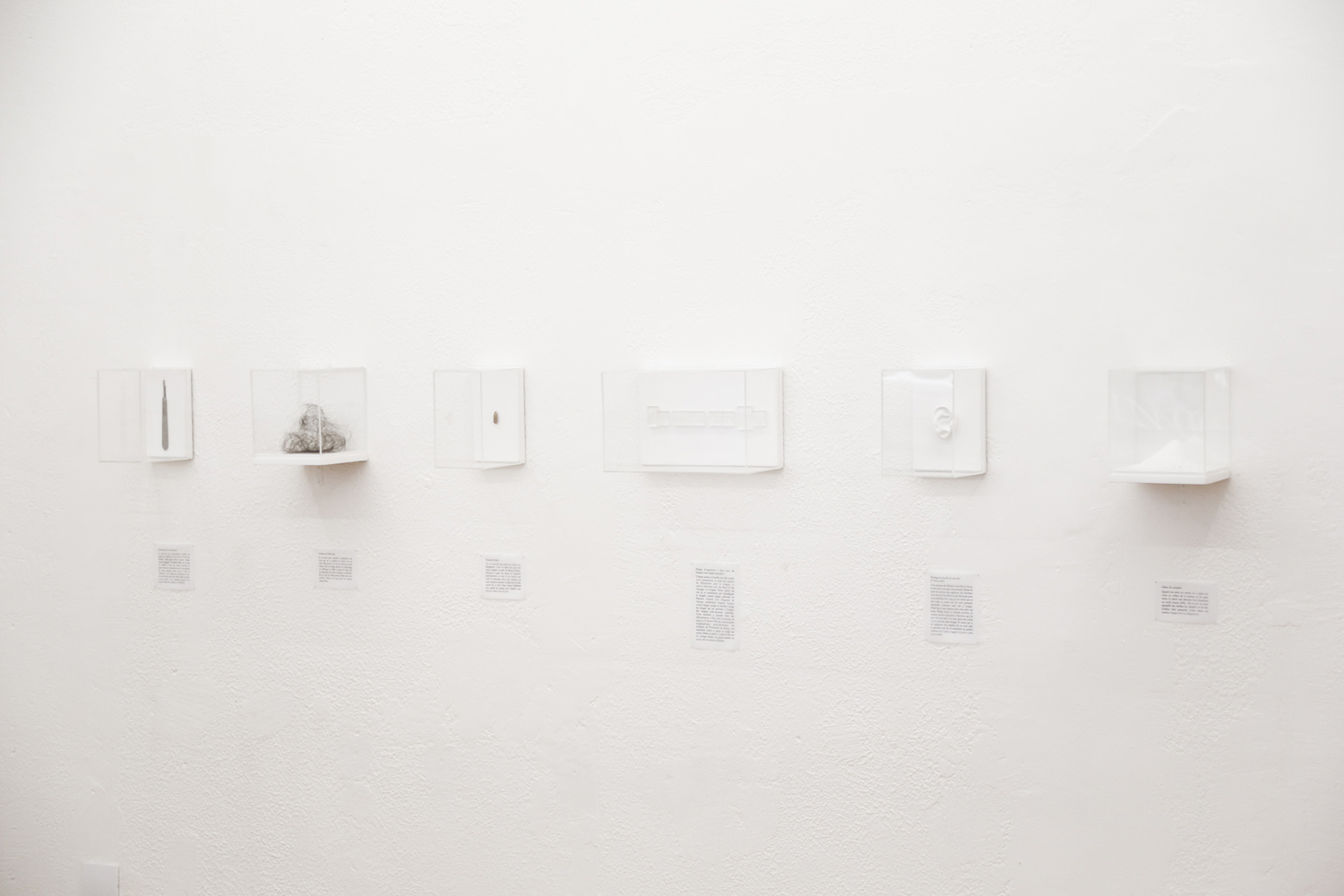
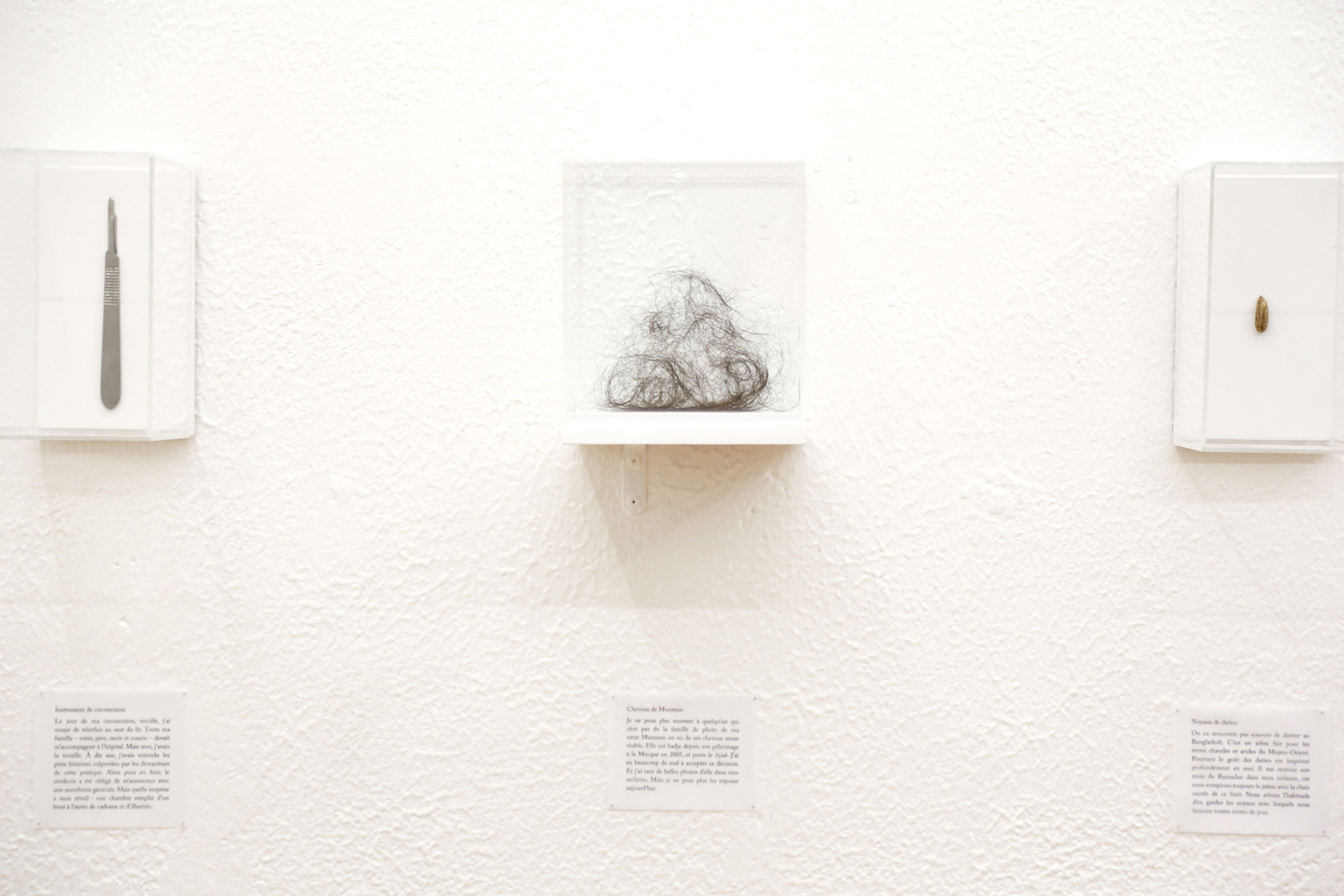
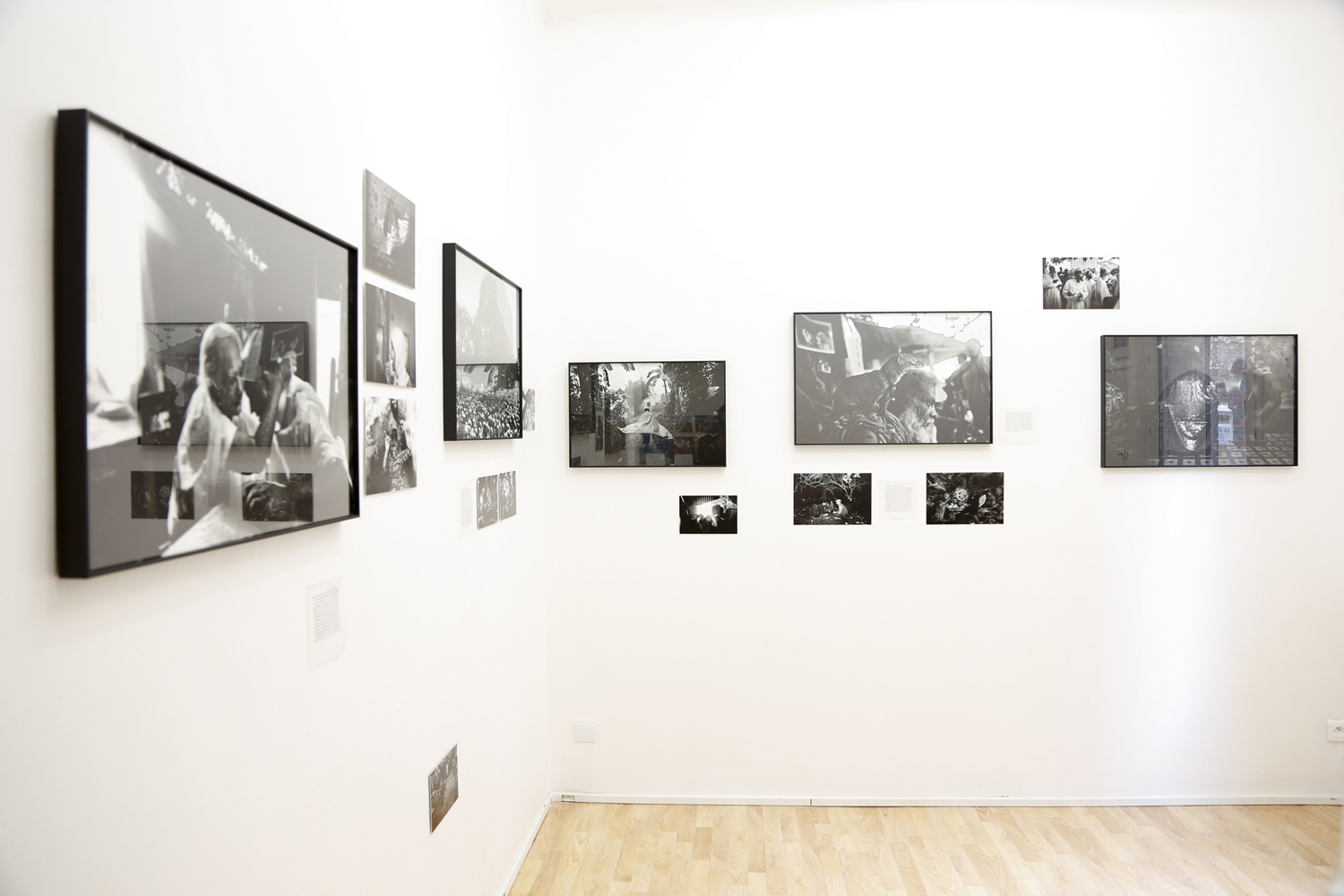

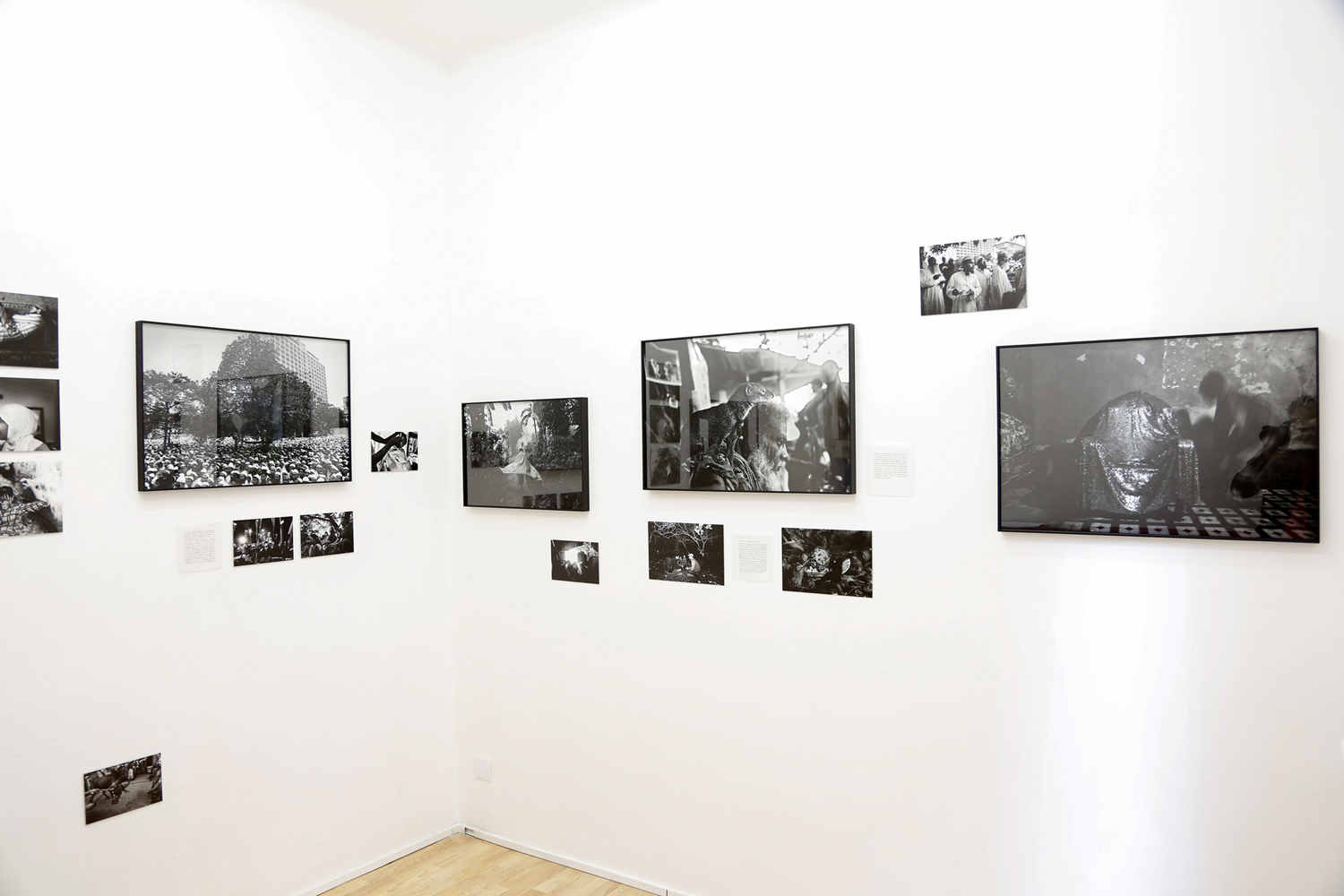
In god we trust, Gallery
Le 247, Paris
7 Nov- 23 Jan 2016
The work has certainly become a complex commentary, and Wasif’s photographs, taken in last 7 to 8 years, seem not to contain the complexities alone. Wasif expanded his mediums and made some objects as the reminiscence of memory with Islam. These objects dissent from cliché Islamic symbols and contain personal memories. He adds a video conversation of three of his close ones; his father, sister and wife. Shot in a classic, Flemish portraiture style, the interviews were taken separately but the three-channel projections creates a triptych, and eventually sets up a conversation between each other and projects differing faiths.
Wasif’s video, photographs and objects traces parallel realities and the religious atrocities, minority attacks, blogger killings, secular movements are often embraced and overlapped. His evident humanistic approach also explores the other side; compassion, submissions and tolerance by the believers. Wasif's personal investigation questions an identity, searches grey lines in a black and white palette; and finally takes him to the same inquiry, what defines 'who we are'?
By Tanzim Wahab
The work started with partial support
of Fabrica F25 AWARD for Concerned Photography.
7 Nov- 23 Jan 2016
The work has certainly become a complex commentary, and Wasif’s photographs, taken in last 7 to 8 years, seem not to contain the complexities alone. Wasif expanded his mediums and made some objects as the reminiscence of memory with Islam. These objects dissent from cliché Islamic symbols and contain personal memories. He adds a video conversation of three of his close ones; his father, sister and wife. Shot in a classic, Flemish portraiture style, the interviews were taken separately but the three-channel projections creates a triptych, and eventually sets up a conversation between each other and projects differing faiths.
Wasif’s video, photographs and objects traces parallel realities and the religious atrocities, minority attacks, blogger killings, secular movements are often embraced and overlapped. His evident humanistic approach also explores the other side; compassion, submissions and tolerance by the believers. Wasif's personal investigation questions an identity, searches grey lines in a black and white palette; and finally takes him to the same inquiry, what defines 'who we are'?
By Tanzim Wahab
The work started with partial support
of Fabrica F25 AWARD for Concerned Photography.